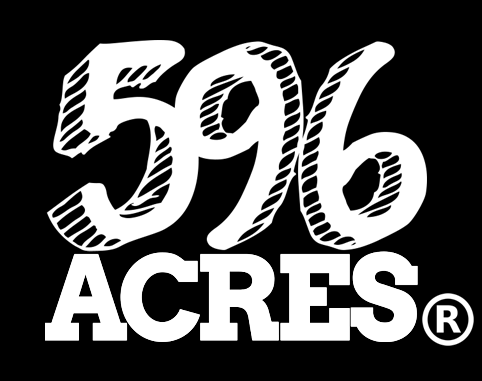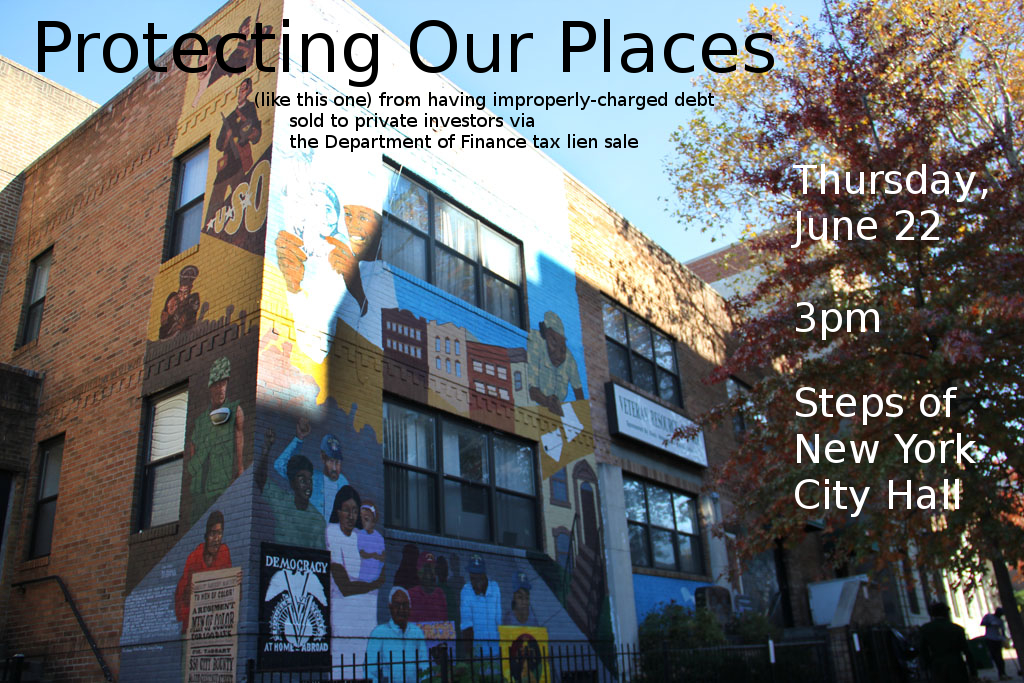There’s a great bill making its way through NYC City Council that would require the Department of Citywide Administrative Services to create a streamlined and centralized system through which people can request to see government documents: an OpenFOIL bill. Our favorite part of this bill is that it would require agencies to post all their responses in a centralized place where people can actually see the documents that other people have requested without having to request them again. An OpenFOIL portal would really build a more open governement.
This would be a great way to get all the City’s Urban Renewal Plans to be posted publicly – we’ve been thinking a lot about this while working on the Urban Reviewer – which you can see in preview here, full site coming soon.
On June 9, Paula testified in front of the NYC Council Committees on Technology and Governmental Operations, with a story from the vacant lot trenches:
I am the director of 596 Acres, New York City’s community land access advocates. Thank you for allowing me a few moments to speak today about how government data, information and the Freedom of Information Law currently impact our work.
Before I do that, I’d like to add a note about the FOIL campaign that led to the release of MapPLUTO from it’s 10-year-old paywall which put a $3,000 per year price tag on having accurate financial and ownership information by parcel for properties in the city. In partnership with the CUNY Center for Mapping, and BetaNYC and our friends in the media, we mobilized dozens of successful FOIL requests for this data set, each one promptly provided by the Department of City Planning for the cost of duplication – five DVDs, each in its own jewel case, each with a price tag of $1. Through FOIL, advocates were able to get for $5 what community groups had paid thousands of dollars for in the decade prior. It was a welcome relief to see that the Department of City Planning chose to make the information available through a download link without the need for a formal FOIL request and eliminate the paywall entirely after several months of this campaign. It is my hope that the MapPLUTO fees paid by advocates and community-based organizations over the last ten years will someday be refunded. Our campaign serves as a great model for the implementation of the OpenFOIL bill; I would urge that one request should be enough to make it mandatory that an agency post a requested document online. A campaign should be redundant and unnecessary.
To support our core work and create the most accurate available map of vacant publicly owned lots that present opportunities for community land access, we have used two of the data sets currently in the open data portal. This new data set is pretty good but not perfect and we regularly rely on FOIL requests to fill in gaps we revealed in agency plan information and procedure. I’m here today in support of a centralized FOIL portal will make it easier for us to do our work. It will also make irregularities in FOIL responses that regularly mark our correspondence much less likely.
As then-Public Advocate de Blasio’s report noted, agencies tend to expedite or delay requests based on the identity of the requester. In our experience, this prejudicial treatment goes even deeper. I am going to bring one example to the attention of the committee – an example that is somewhat sweet and illustrates that, even where agency records access officers have the best intentions, the current process does not reliably produce documents as they are requested.
There is a swath of properties in the Melrose section of the Bronx that are slated to become a park under the Melrose Commons Urban Renewal Plan. I spoke with the Bronx Borough Parks office manager, who assured me that, even though the properties remain in the jurisdiction of Housing Preservation and Development, this is a project that Parks is working on and promised that documentation would be emailed to me as soon as it is available in their office. When no follow-up information appeared within a month of this conversation, I made a FOIL request for these documents through the Parks Department Records Access Office, referring to the Melrose Commons Park, the “Urban Renewal Site” number that the Parks Department is using and the block and lots numbers of all properties included in the footprint of this planned park. The request was acknowledged and I received a response within twenty days, as the acknowledgement promised.
What the response revealed was that staff at Parks know who I am and what 596 Acres does, but did not disclose any documents related to the site I requested documents about. Instead, we received several copies of GreenThumb community garden licenses for gardens in the neighborhood of Melrose Commons – with different names and clearly different block and lot numbers. Our core work is making such spaces possible but this was clearly not what I requested.
This sweet error exposes the quixotic nature of current agency responses to FOIL requests. We are looking forward to a more transparent and streamlined process that will make such errors less likely.






